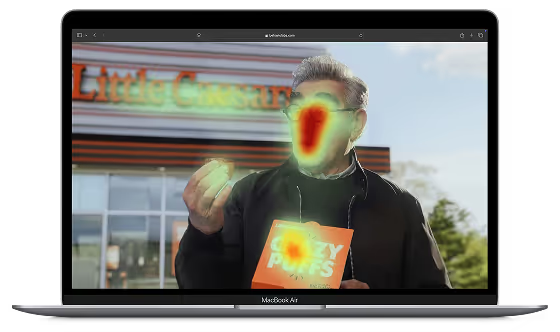Pretty much every marketer has faced this scenario – you come up with a campaign concept or merely an idea for an ad creative and immediately start wondering whether it’s got potential.
If only there were a way to put your idea to the test before you allocate a substantial amount of your budget to it.
Well, guess what? There is. It’s called ad concept testing.
What is concept testing?
Ad concept testing (also called concept testing ads or ad campaign testing) is a research process used to evaluate consumer responses to an advertising idea before it’s introduced to the market.
You might be thinking – wait, how do I test an abstract thing such as an idea? Easy. As long as you can verbalize it, put it on paper, or sketch it out, you’re good to go. The concept is then shown to a target audience to gather feedback on clarity, emotional appeal, and relevance.
The benefits of ad concept testing
Concept testing provides valuable insights before you commit to expensive media or production costs. Here are the key advantages:
- Avoid costly mistakes: Identify weak concepts early and redirect resources toward what works.
- Increase ROI: Optimize creative ideas based on audience reactions.
- Boost creative confidence: Make data-backed decisions without stifling creativity.
- Improve brand perception: Understand whether your ads communicate your brand effectively and resonate emotionally.
.avif)
How ad concept testing works
There are several ways to test ad concepts, depending on your goals and resources. Below are the most common approaches marketers use today.
1. Surveys
Surveys serve as a quantitative tool to collect extensive data on how audiences react to product ideas. By answering structured questions about their views, preferences, and recall, participants provide measurable insights into the viability of a concept.
Although constructing a survey to get opinions on an idea sounds like a no-brainer, it does involve a couple of caveats.
It is, for one, a lot harder to put together a cohesive questionnaire that actually provides you with relevant insights. Not to mention the respondents – where do you find them?
All this is better left in the hands of professional researchers.
2. Focus groups
Focus groups involve small, diverse sets of participants who engage in moderated discussions about their reactions to product ideas. This qualitative approach offers deep insights into emotions, motivations, and perceptions.
Nevertheless, the small number of participants might not represent the broader market, and the presence of a moderator can influence the feedback.
And much like the previously mentioned surveys, a focus group is much harder to execute than you might think. You’re not just talking to a bunch of strangers, you have to follow a script, actively listen to what your respondents are saying, and subsequently sift through their answers for useful findings. Phew!

3. Software-based ad concept testing
Modern ad concept testing software like Behavio provides a more detailed and precise analysis than traditional methods.
Behavio leverages recent marketing science to evaluate key elements of concept ideas. Instead of merely asking respondents for their opinions, it involves tasks that yield more accurate reflections of actual consumer behavior.
Software concept testing also makes the whole process easier and faster. Usually, marketers can upload their ideas and concepts to a simple user interface, which provides them with real-life data in a matter of days.
Key metrics in ad concept testing
Before we talk about ad concept testing specifically, it is important to note one thing. Studies indicate that successful ad creatives excel in three key areas:
- Branding: How well does the concept represent your brand? Is brand recall strong?
- Need: Do audiences understand what the concept is trying to communicate?
- Emotion: Does the concept make people feel something positive or memorable?
Tools such as Behavio measure these three metrics and benchmark your ad concepts against competitors. This allows you to decide whether to move forward, adjust, or drop a concept altogether — before production begins.
Here’s what that looks like in action:

How do these results help me?
Concept testing gives you a heads-up when it matters the most: at the very beginning of the ad creation process. This way, you save money by not pursuing ideas or variants that simply do not work with your target audience.
It’s always better to base your strategic marketing decisions on real-life findings from your customers rather than wild guesses.
Final thoughts
Ad concept testing is one of the smartest moves a marketer can make. By gathering feedback on your ad ideas early, you can identify winning concepts, refine your messaging, and save significant budget.
Using an all-in-one tool like Behavio, you can test ad concepts quickly and get real feedback on how well your ideas communicate your brand, meet audience needs, and evoke emotion. Before you launch your next campaign, test your concepts and launch with confidence.
Frequently asked questions
Ad concept testing happens before an ad is finalized. It tests early ideas, visuals, and messages to identify what resonates best. Traditional ad testing, on the other hand, evaluates performance of a fully produced ad that may already be running in market.
Ideally, before you invest in production or media. Early testing helps you avoid spending money on ideas that won’t perform.
Absolutely. Affordable software solutions like Behavio now allow even small teams to upload creative ideas and get reliable insights within days.












.png)







